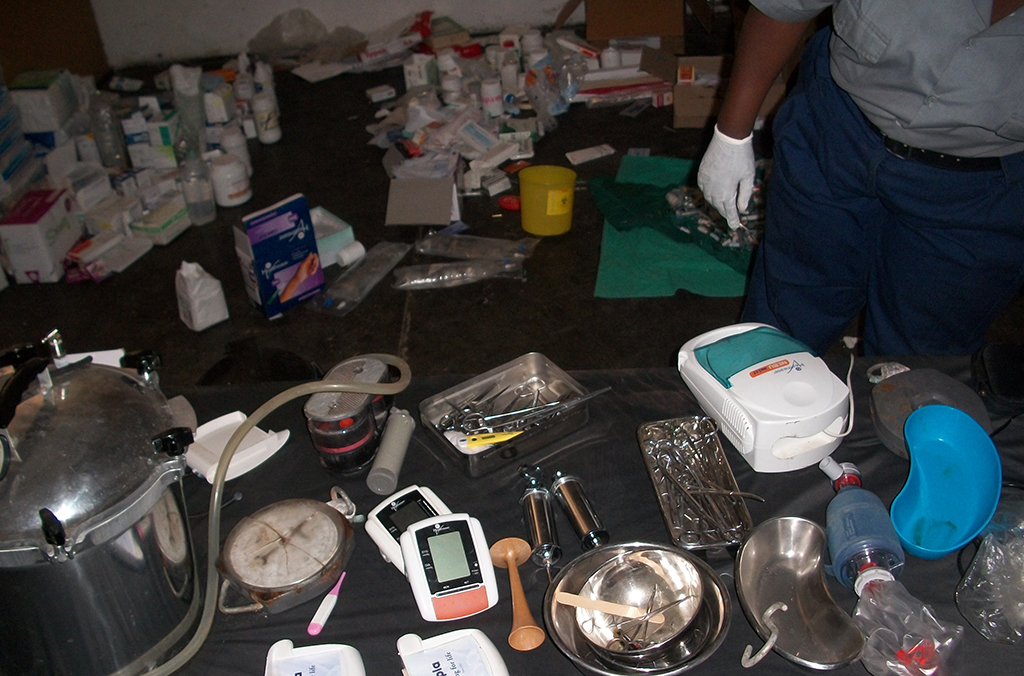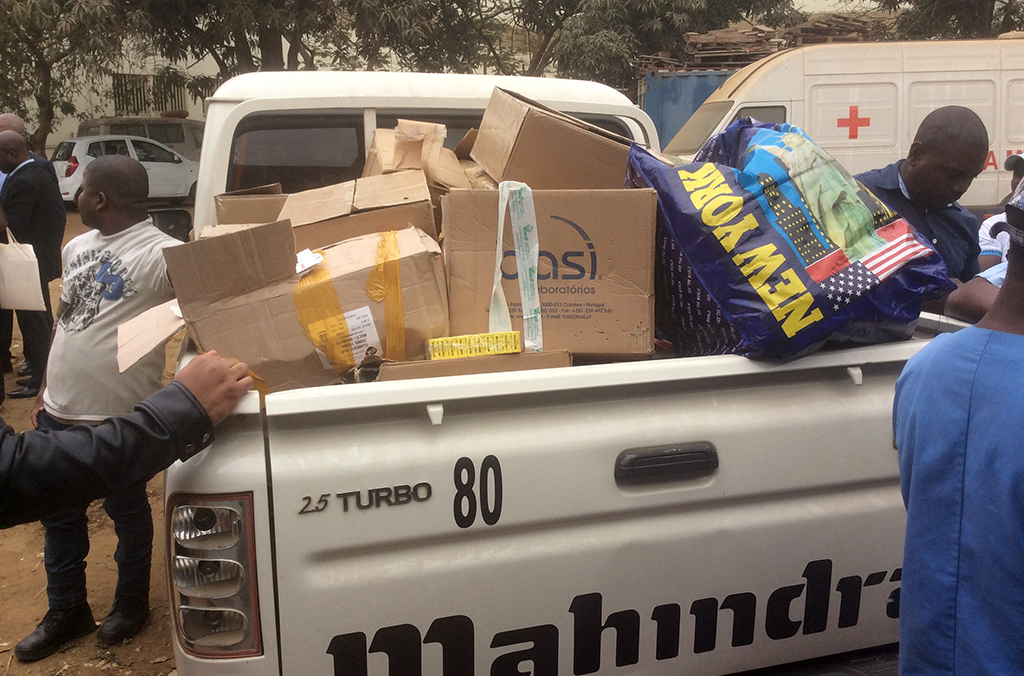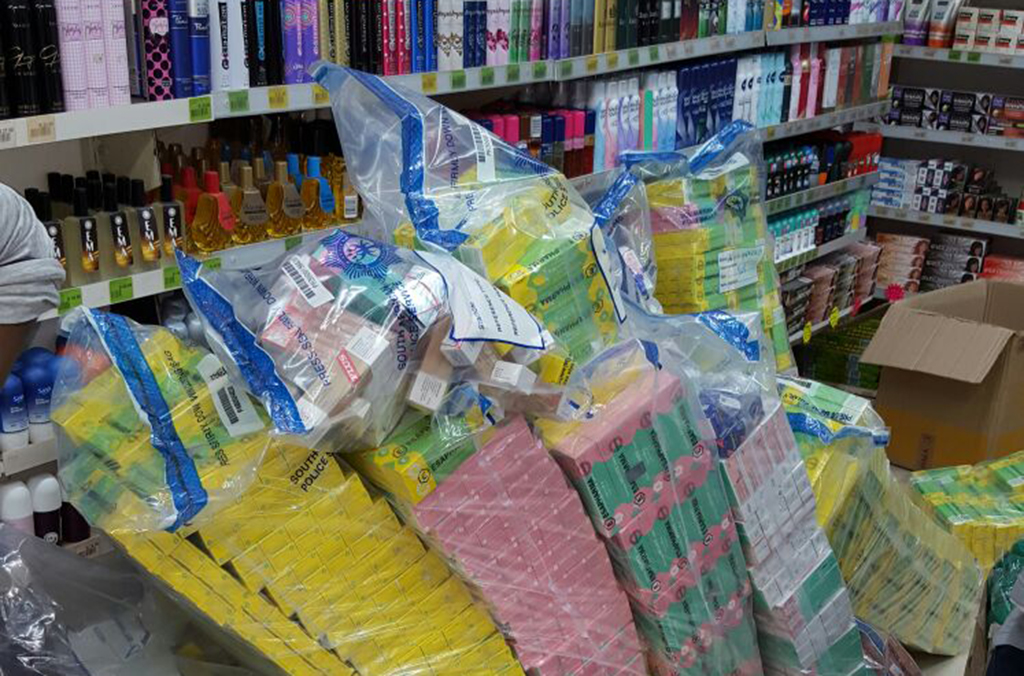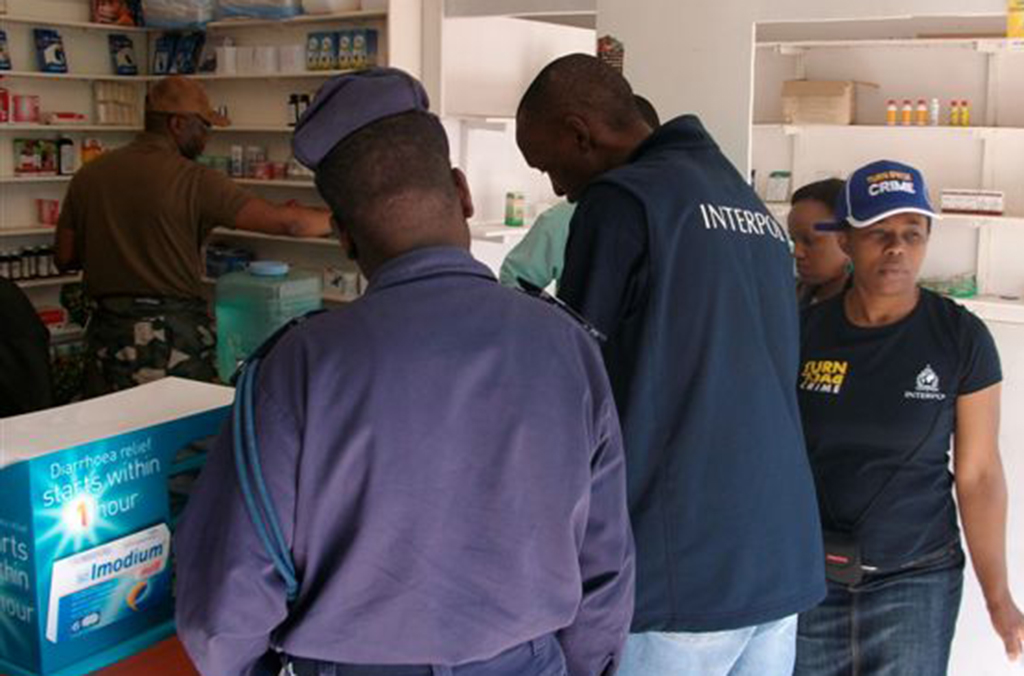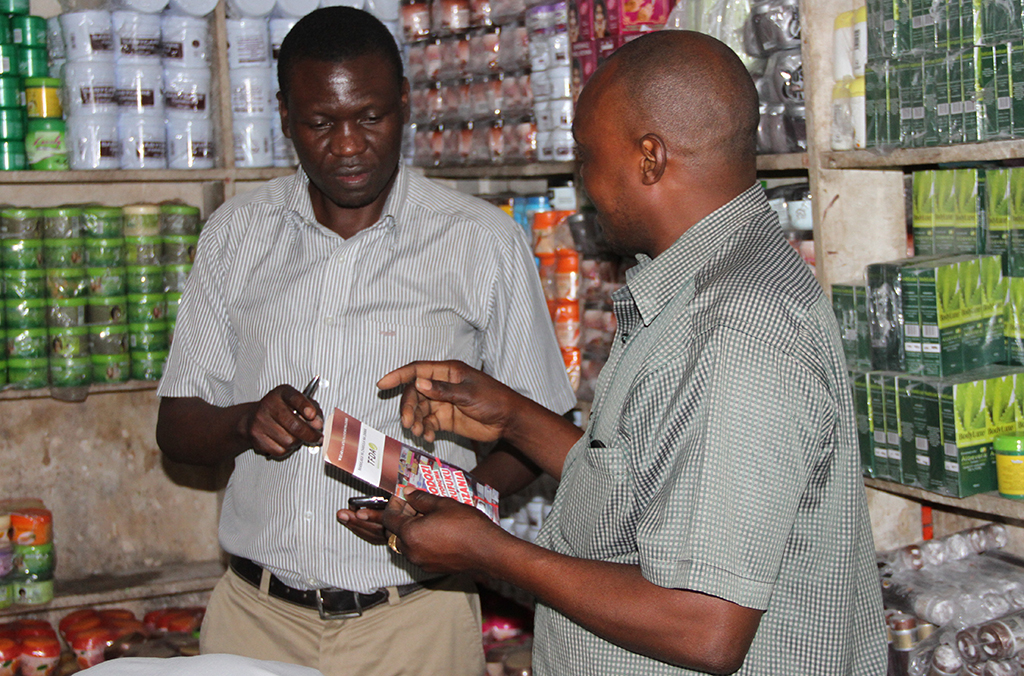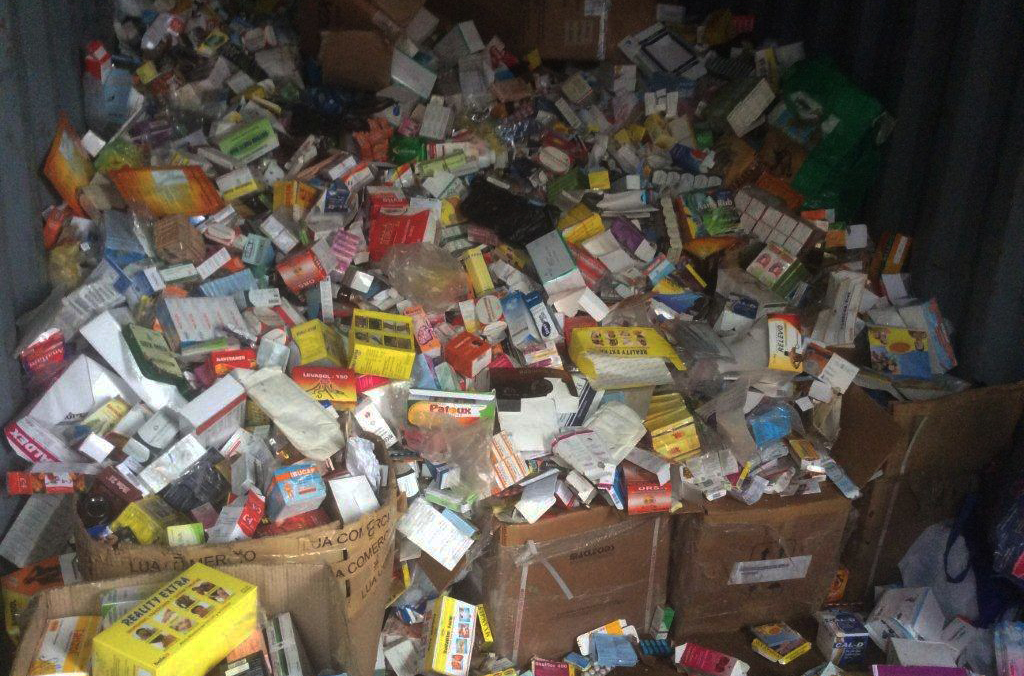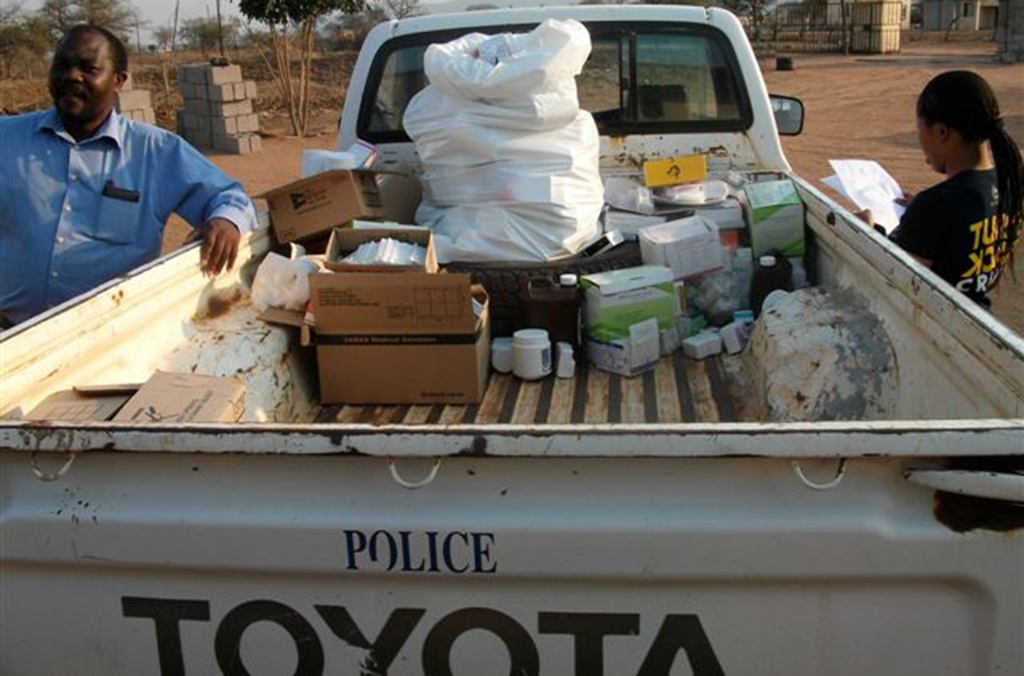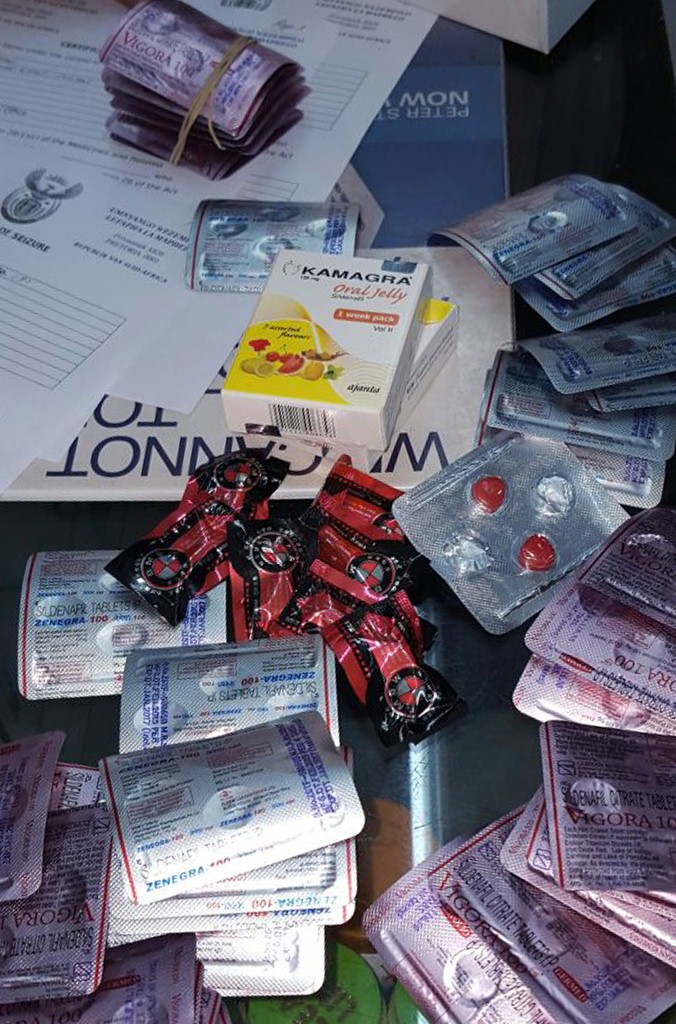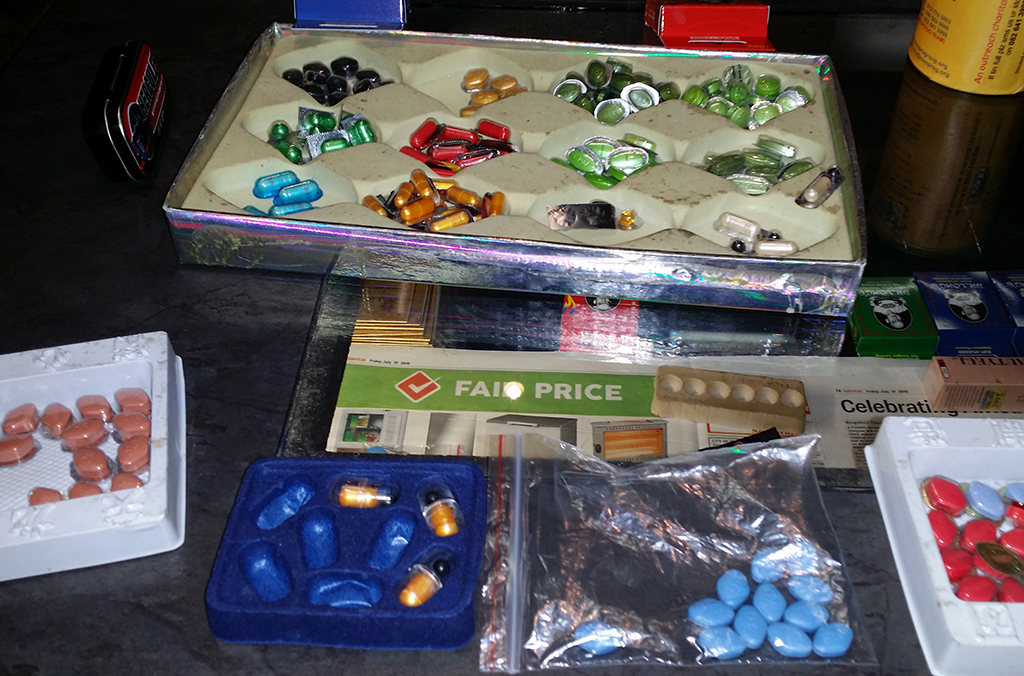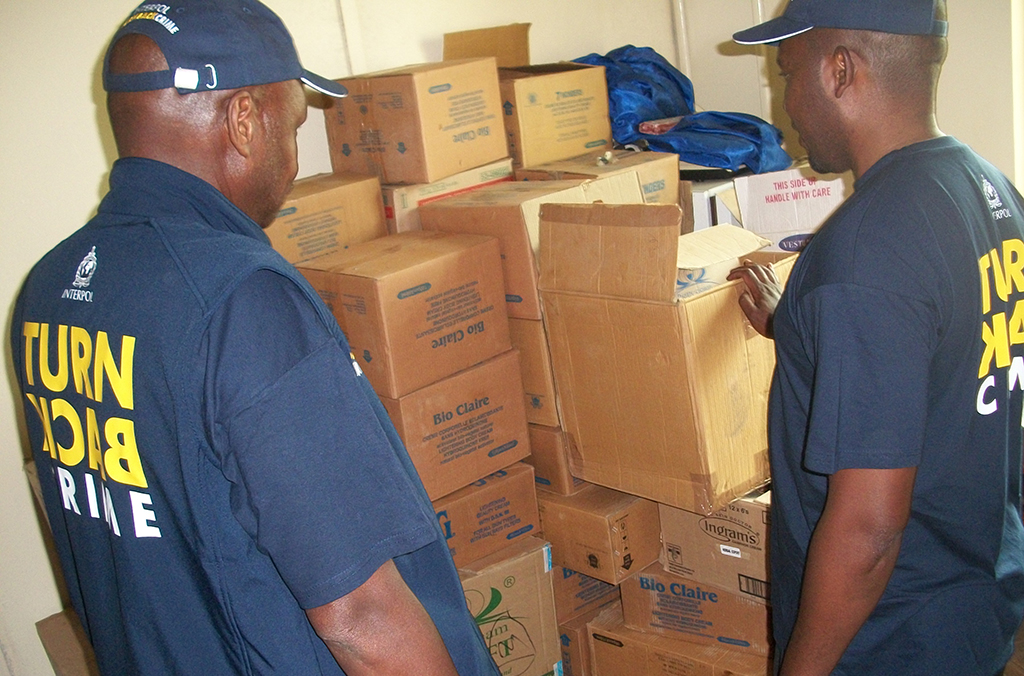LYON, France – Authorities shut down three illicit manufacturing facilities and seized more than 150 tonnes of counterfeit and illicit medicines in the largest INTERPOL operation targeting pharmaceutical crime in Southern Africa.
Some 2,100 police, customs and health regulatory officers took part in Operation Giboia II (19-21 August) across seven countries – Angola, Malawi, South Africa, Swaziland, Tanzania, Zambia and Zimbabwe. Raids were conducted at markets, shops, warehouses, pharmacies, clinics and ports in more than 50 cities, as well as on transport vehicles.
In South Africa, three clandestine facilities manufacturing illicit medicines were shut down, along with some 20 pharmacies and shops selling counterfeit or illicit and potentially harmful items across the participating countries.
Routes used by criminal networks to traffic fake pharmaceuticals throughout Southern Africa and beyond were also identified.
The seized illicit and counterfeit medicines, both branded and generic, are estimated to be worth approximately USD 3.5 million. Diverted, banned and expired medicines and medical devices were also identified.
Buying unregistered pharmaceutical products could have ‘serious side effects of unknown proportions’, said Zimbabwe Police Senior Assistant Commissioner Charity Charamba, pointing to the 424,000 tablets of fake anti-retroviral drugs recovered in the country during the operation.
Operation Giboia II also saw the arrest of some 550 individuals for offenses including counterfeiting; the illicit manufacturing, sale or trafficking of medicines; and illegal medical practices.
Zimbabwe’s Minister of Health and Child Care, David Parirenyatwa urged consumers to purchase all medicines from a licensed pharmacy or shop to ensure they are receiving genuine products.
Key objectives of Operation Giboia II were to identify and dismantle the criminal networks producing and distributing falsified and illicit pharmaceuticals; increase cooperation and information sharing amongst countries and agencies in the region; and to raise awareness of the dangers of fake medicines.
“Pharmaceutical crime is widespread across Southern Africa and poses a very real threat to public safety,” said Tim Morris, INTERPOL’s Executive Director of Police Services.
“Operation Gibioa II has demonstrated that the only effective way to combat the organized crime networks involved in pharmaceutical crime is through a coordinated response engaging law enforcement and the health sector, with the support of INTERPOL,” he added.
Among the seized products were illicit and counterfeit antibiotics, painkillers, erectile dysfunction medicines, birth control and antimalarial medication.




